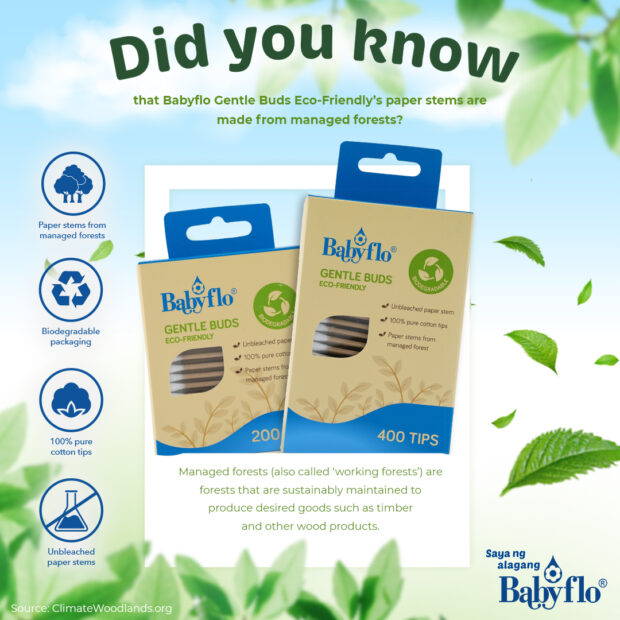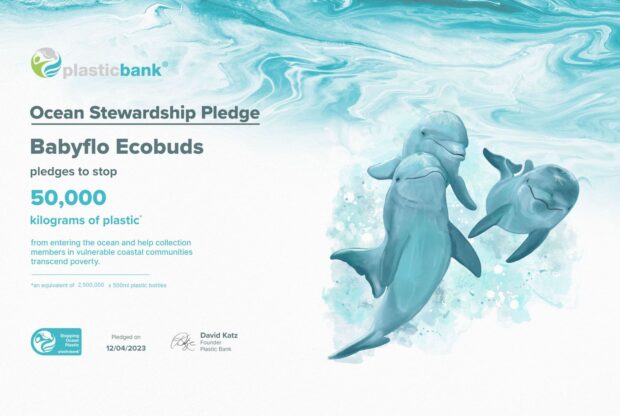Babyflo and Plastic Bank join forces to combat plastic pollution in the Philippines
Sustainability has become an increasingly pressing global concern, and the Philippines is no exception. Over the years, individuals, businesses and even the government have collectively rallied for practices and products that are gentler on the environment. In a recent survey conducted by Pulse Asia, 83% of Filipinos now prefer environment-friendly products and services from brands. The challenge now lies in whether companies will be willing to fulfill this desire.
Recognizing the importance of this issue, Babyflo, a leading personal care brand under PHILUSA Corporation, has taken a significant step towards sustainability by partnering with Plastic Bank, a Canada-based social enterprise dedicated to reducing ocean-bound plastic waste. The partnership aims to tackle the plastic pollution crisis, safeguarding not only our forests but also our precious oceans.
Building on Babyflo’s commitment to environmental responsibility, the brand has already begun transitioning to a more eco-friendly product line of cotton buds with its Babyflo Gentle Buds Eco-Friendly that are made from natural ingredients with 100% pure cotton tips and unbleached paper stems that come from responsibly managed forests. This move aligns perfectly with the shared advocacy of Babyflo and Plastic Bank to combat plastic waste and protect our planet.
In the first year of their collaboration, PHILUSA Corporation and Plastic Bank have stopped 50,000 kilograms of plastic from entering the ocean – the equivalent of 2.5 million plastic bottles. This remarkable achievement serves as a testament to the power of collaboration and the immense impact that can be achieved when businesses prioritize sustainability.
PHILUSA Corporation and Plastic Bank are committed to another year of action, aiming to collect another 50,000 kilograms of plastic with the help of Plastic Bank’s collection community members who are dedicated to preventing plastic from polluting our oceans while transcending poverty through the exchange of collected plastic for life-improving benefits.
“It is a privilege that we can get to take part in efforts to preserve our environment for future generations,” said PHILUSA Corporation President and General Manager Neogin Evangelista. “By joining forces with Plastic Bank, we can make a significant difference in the fight against plastic waste, not only in our forests but also in our oceans. This collaboration is a testament to our unwavering commitment to sustainability.”
“Plastic pollution is undeniably one of humanity’s most pressing challenges, but our collective actions can effect significant change. We are thrilled to continue our collaboration with Babyflo for the second year, creating lasting environmental and social impact in the communities we serve,” said Rene Guarin, Regional Vice President Asia Pacific of Plastic Bank. “However, let us be reminded that true success in combatting plastic pollution hinges on transforming our behaviors and our relationship with plastic. Each conscious choice we make creates a ripple of positive change for our planet, our ocean, and our communities.”
The partnership between Babyflo and Plastic Bank serves as an inspiration for other businesses and individuals to take action and embrace sustainable practices. By collectively working towards a greener future, we can protect our natural resources, mitigate the effects of climate change, and ensure a better world for generations to come.
ADVT.
Read more stories here:
Expanding global trade routes beyond ‘balikbayan’ boxes
Embrace luxury in simplicity at One Hagdan Villas in Boracay’s Paradise

